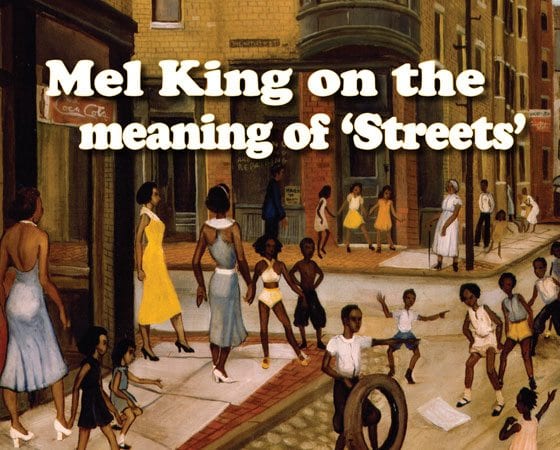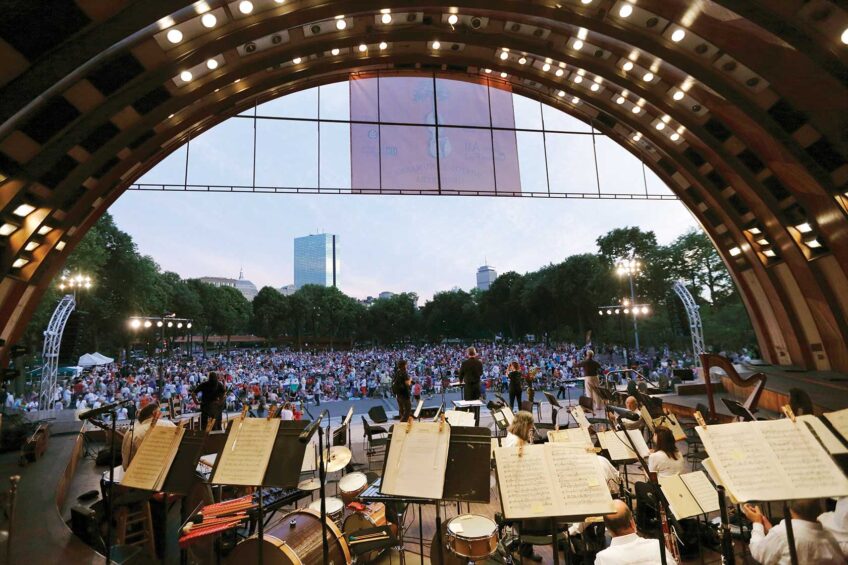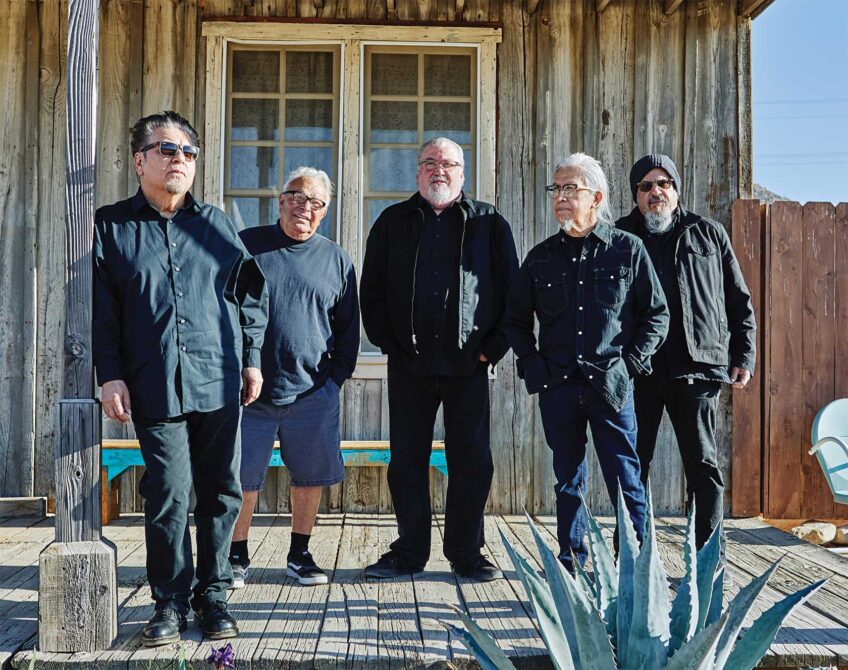

(Image courtesy of Museum of Fine Arts, Boston)
They make appearances in books, movies, plays and songs by performers ranging from Common to U2. But as Mel King sees it, “Streets don’t get their due and they’re an incredible part of all of our lives.”
“Nobody talks about streets … as an entity on their own,” the longtime community activist said.
To rectify that oversight, King began writing about the streets of his life, resulting in an illustrated long poem book, titled “Streets,” published in late 2008.
“Streets” is the focus of a reading and book signing tonight at United South End Settlements’ Harriet Tubman House, as well as an exhibit at the same venue that runs through the month of February.
Streets shape our lives from the moment we enter the world, King said.
“I realized as I was writing this that I had been thinking about this ever since I was born,” he said during an interview last week at the South End Technology Center on Columbus Avenue, which he founded after retiring from his post as a professor at the Massachusetts Institute of Technology in 1996. “As soon as you get out and walk, you just have to go where the street takes you. In a way, it’s a metaphor for your life.”
The book opens with the name of the street where King spent his youth: Seneca Street.
“Urban renewal wiped out all those streets, but that’s where I grew up,” King said.
The neighborhood surrounding Seneca Street — where the Boston Herald building now stands, at the intersection of the Massachusetts Turnpike and the Southeast Expressway — had “a racial, ethnic cultural mix [that] was as great as it could be, and I learned a lot from the different cultures on the street,” he added.
In “Streets,” King draws a vivid picture of street life, of babies in strollers, children playing hopscotch and stickball, runners tackling Heartbreak Hill and people joining marches for justice. He includes references to personal events, such as his 1983 campaign for mayor and a childhood experience where his father welcomed a stranger off the street into their home, as well as biblical, historical and contemporary allusions, to the disciple Paul and to “Turners Nat and Chuck.”
A series of watercolors, painted by Artists for Humanity teen artist Billy Nunez, brings the poem to life. The paintings are renderings of photos King took, including images of his granddaughter watching fireworks, of children at an ice cream cart, of a fire hydrant and of a streetlight. The finely captured depictions of real-life scenes underscore one of the poem’s fundamental points: streets are a concrete part of our lives, but they also exist in our imaginations as abstract cultural icons.
“The illustrations have gotten a lot of praise,” noted publisher Dyahnne Alston. “The [book as a whole] just makes you feel differently about the things you see every day.”
Alston owns Sweetie’s Press, a “fairly new” publishing company based in Silver Spring, Md., that aims to “publish minority literature, by minority writers and featuring minority children.” King signed the book deal to publish “Streets” on his 80th birthday last October and the soft cover came out in November, Alston said.
The book, which is aimed at adults and children alike, has a colorful, glossy cover and thick pages that encourage the reader to linger over the words and illustrations on each page.
“We are going to offer a hardback within the next three or four months,” Alston added.
Tonight’s reading and reception at Harriet Tubman House kicks off a month-long exhibit to simultaneously mark Black History Month and to honor King for “his contributions to the South End neighborhood in his depiction of urban life,” said Arnesse Brown, director of the South End Center for Adult Education.
The project was a collaborative effort from the start. It took off when local media producer Rochelle Thorpe heard King read from his poem and encouraged him to put it in book form. The book is dedicated to Boston-based artist Allan Rohan Crite, who passed away in September 2007, and features two of his paintings.
“In the book, I lift him up as one who I think really chronicled life on the streets,” King noted.
“Streets” also features a political poster by Susan Thompson, and Nunez’s renderings of the photos include images contributed by friends and family traveling in Korea and Indonesia.
The book has been in high demand. During the interview, King paused to sign copies for Jean Gibran, of the South End Senior Center.
“A woman read from the book [at the senior center] and we looked at the New York streets,” Gibran said, as the two also reminisced on the life of South End community organizer,Chris Hayes. Hayes, who founded the Neighborhood Crime Watch program, passed away earlier last week.
King recalled the fish fries Hayes would cook up for neighbors on Sundays. Fittingly, his book notes that streets are “for the civic minded organizers of block watches, flea markets parties or fish fries.”
As with its timely commemoration of a beloved neighborhood figure, the scope of the poem is at once broad and specific, encompassing the cultural, metaphoric and daily implications of streets. King says that is how he intended his poem to be.
But, he added, “Streets” is very much a work in progress that he hopes will encourage readers to reflect on the role streets play in their own lives. His favorite part of the book, he says, is the last page: a blank space on which he invites you to “draw your street.”
Tonight’s reception and book signing will run from 6 to 8 p.m. at the Harriet Tubman House, 566 Columbus Avenue, Boston. The Harriet Tubman House is an accessible venue. This is a free event and is open to all. Light refreshments will be served. For more information, call 617-536-8610.






